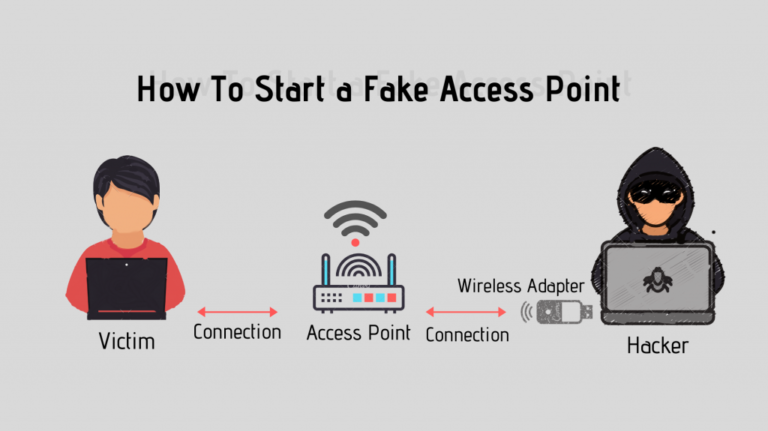Why Is Security Important In Finance?
Security is essential in finance, both for individuals and companies, as it minimizes the risk of financial loss due to fraud, theft, or other malicious activities. Financial security helps ensure that an individual or business’s financial information is kept safe and secure, and that any transactions that take place are done so with the utmost integrity. Financial security is critical to maintain the trust of customers and investors in an organization, and to protect an individual’s or business’s financial assets from being stolen or misused. Security measures, such as encryption technology and authentication processes, can help protect against unauthorized access to important financial information. Additionally, security protocols help maintain the privacy of an individual’s or business’s financial records, as well as prevent identity theft and financial fraud. Financial security is a vital component of any successful financial strategy, and it is important for everyone to understand the importance of security and the measures that can be taken to ensure that their financial information is kept safe and secure.
Definition of Financial Security
Financial security is a term used to describe the security of financial resources and assets. It is the ability to maintain financial stability and to protect against loss or theft. Financial security involves protecting both current and future financial resources, as well as protecting against financial harm or losses.
Financial security is essential in order to ensure that individuals and organizations can pursue their financial goals without fear of financial harm or losses. This includes protecting investments, savings, and other financial assets. Financial security also involves protecting against identity theft, cybercrime, and fraud.
Financial security is also important for overall financial health. It allows individuals and organizations to create and maintain a secure financial future. By protecting against financial harm and losses, financial security can help individuals and organizations manage their money and assets more effectively.
In order to ensure financial security, individuals and organizations need to make sure that their financial resources are protected. This includes taking steps to protect against cybercrime, identity theft, fraud, and other financial risks. Financial security also involves creating and maintaining a financial plan that includes setting and achieving financial goals, creating a budget, and monitoring financial progress.
Impact of Financial Security on Businesses
Financial security is becoming increasingly important in today’s world, especially for businesses. Poor security measures can lead to numerous issues, ranging from data breaches to financial losses. As such, it’s essential to understand the importance of security and how it can help protect a business.
To begin, it’s important to note that financial security can help protect a business against potential losses. When a business has adequate security measures in place, it can help protect the company’s assets, customer data, and financial information. This can help prevent costly losses due to cyber attacks, data theft, or other security breaches.
Another important benefit of financial security is that it can help companies maintain the trust of their customers. If a business has poor security measures, customers may be hesitant to trust the company with their data or financial information. This can lead to a decrease in customer loyalty, as customers may feel unsafe doing business with the company.
Lastly, financial security can help a business maintain its reputation. If a business is found to have inadequate security measures, it can lead to significant reputational damage. This can have serious implications, as customers may be less likely to trust the company and may hesitate to do business with them in the future.
Overall, it’s essential for businesses to understand the importance of security in finance. Good security measures can help protect a business’s assets, customer data, and financial information, as well as maintain customer trust and a positive reputation. Without adequate security measures, a business may be at risk of costly losses and reputational damage.
Benefits of Financial Security in Finance
Financial security is key in the finance industry. It helps protect businesses and individuals from risks and threats that could cause financial loss. With proper security measures in place, organizations can protect sensitive customer data, funds, and other critical assets. Additionally, financial security helps businesses prepare for potential disasters, such as cyberattacks, natural disasters, and data breaches, and better manage their financial operations.
Financial security also ensures that organizations comply with industry regulations and laws, such as the Sarbanes-Oxley Act and the Payment Card Industry Data Security Standard. Adhering to these regulations helps to protect customer data and ensures the accuracy of financial records. Financial security can also help businesses protect their finances from fraud and other malicious activities.
Financial security also offers businesses the ability to track their finances more effectively. With the right security measures in place, businesses can monitor their financial transactions, detect suspicious activity, and quickly respond to potential threats. This can help businesses to prevent financial losses and better manage their financial operations.
Overall, financial security is essential for organizations in the finance industry. It helps protect customer data, funds, and other critical assets, as well as ensuring compliance with industry regulations and laws. Additionally, financial security can help businesses track their finances and respond to potential threats quickly. By investing in financial security measures, businesses can ensure their financial operations remain secure and successful.
Challenges of Financial Security in Finance
Financial security is a crucial element in the world of finance. It’s essential to ensure that all financial transactions are secure, as any breach of data can cause major financial losses or even the collapse of a company. But financial security is an ever-evolving challenge, as cybercriminals become more sophisticated and fraudsters more brazen.
Financial security covers a wide range of areas, including network security, data privacy, authentication, and encryption. Many organizations struggle to stay ahead of hackers, and even with the strongest security measures in place, there are still risks. Cybercriminals are becoming increasingly sophisticated in their methods, and they may target a company’s data or networks without ever setting foot inside.
To protect against these cyberthreats, financial institutions must stay up-to-date on the latest security technologies and strategies. They must also invest in robust security measures, such as multi-factor authentication, encryption, and authentication protocols. These measures help to protect data and networks from unauthorized access and ensure that financial operations remain secure.
Financial security is also important because it helps protect customers and clients from fraud and identity theft. Companies must have strong measures in place to protect customer data and ensure that customer information is kept safe. This includes measures such as fraud detection systems, which can detect potential fraud attempts and alert authorities. Companies must also have systems in place to monitor and detect any suspicious activity, such as unauthorized wire transfers or suspicious account activity.
Security is essential for any financial institution, as it helps protect both customers and the business itself. Companies must invest in robust security measures and stay up-to-date on the latest technologies and strategies to ensure their financial operations remain secure.
Best Practices for Financial Security in Finance
Financial security is the cornerstone of any successful business. It is essential to ensure that your financial data is secure and not open to manipulation or theft. Financial security is critical for businesses to protect their assets, secure customer information, mitigate risks, and comply with industry regulations.
The best practices for financial security involve the implementation of secure technology and systems, as well as building a culture of security within the organization. Businesses should prioritize the use of secure authentication measures such as two-factor authentication, encryption, and data masking. It is also important to create a secure environment for employees to access financial information and ensure that all data is protected from unauthorized access.
Organizations should also invest in security training for employees and regularly review and update their security policies. Businesses should also ensure that their financial systems are regularly tested for vulnerabilities and monitored for suspicious activity. Finally, businesses should maintain an effective incident response plan to identify and address potential threats.
By following these best practices, businesses can ensure that their financial data is secure and protected from malicious actors. This helps to ensure the longevity of the business, as well as protect the privacy of customers and employees.
Conclusion
When it comes to finance, security is paramount. It is essential to protect financial assets and information from cyber threats and other malicious actors. Security measures such as encryption, two-factor authentication, and strong passwords can help keep financial information safe. Additionally, organizations should consider implementing security training and awareness programs to ensure employees understand the importance of security and take steps to protect the organization’s financial data. Security is not only important for financial institutions, but for all organizations that handle sensitive customer information, such as credit card numbers, bank account numbers, and more. With the right tools, organizations can keep their financial assets and information safe.
FAQs About the Why Is Security Important In Finance?
1. What risks are associated with not having financial security?
Answer: Not having financial security can put you at risk for identity theft, fraud, and financial losses due to unsecure transactions.
2. How can I protect my finances from security threats?
Answer: You can protect your finances by using secure passwords, regularly updating software, encrypting data, and avoiding clicking on suspicious links.
3. What kind of financial data should I be protecting?
Answer: You should protect any sensitive financial data, such as bank account numbers, credit and debit card numbers, and passwords.
Conclusion
Security is an important part of financial systems, as it provides protection from fraud, theft, and other malicious activities that can harm individuals and businesses. Security is also important in finance because it can protect sensitive information and valuable assets, as well as help to ensure that financial transactions are conducted in a safe and secure manner. Security is also important because it can help to ensure that financial services are provided in a reliable and secure manner, and that financial data can be accessed by authorized personnel only. By implementing effective security measures, financial institutions can ensure that their customers feel safe and secure when conducting financial business with them.


